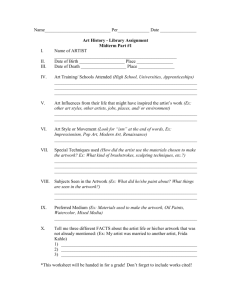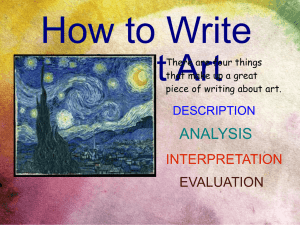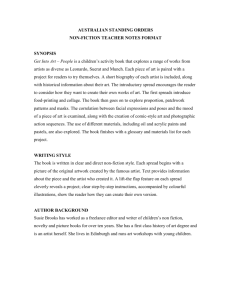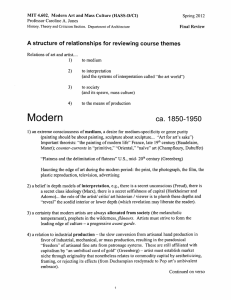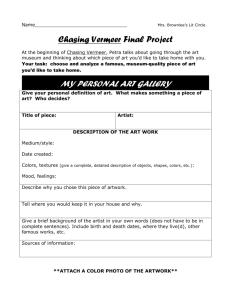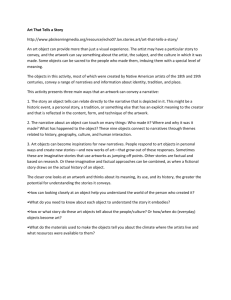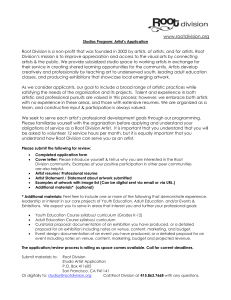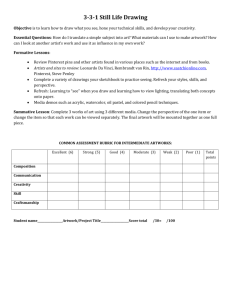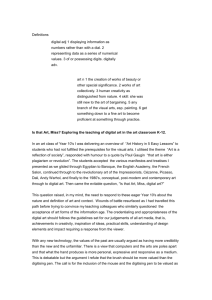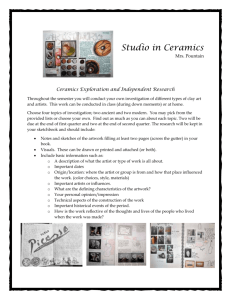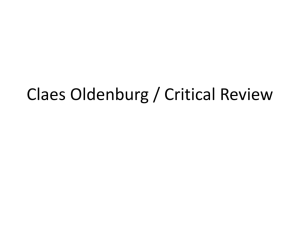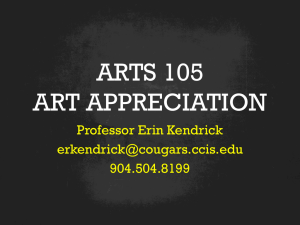Conserving Digital Art for the Ages
advertisement
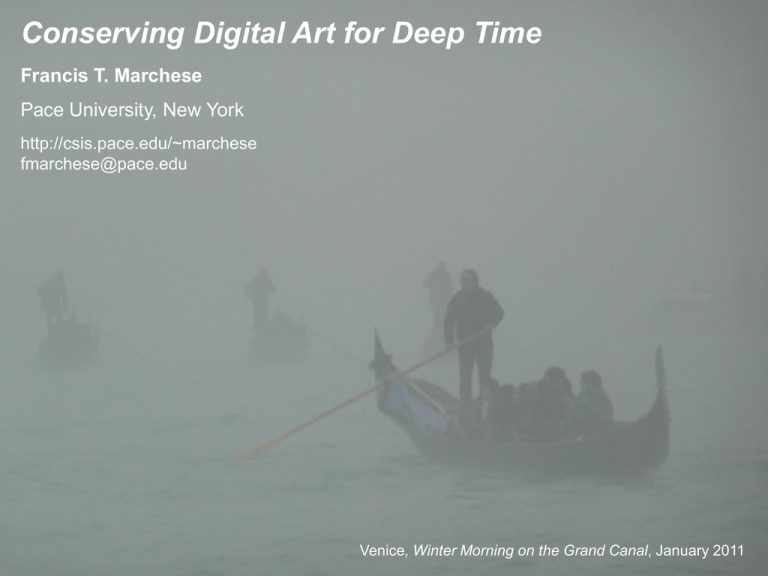
Conserving Digital Art for Deep Time Francis T. Marchese Pace University, New York http://csis.pace.edu/~marchese fmarchese@pace.edu Venice, Winter Morning on the Grand Canal, January 2011 Giovanni Bellini, Madonna and Child with SS. Nicholas, Peter, Mark, and Benedict, 1488. Tempera on panel, S. Maria Gloriosa dei Frari, Venice Challenge • Year 2511 • Curate show of time-based digital artwork from 1st decade of 21st century • What kinds of works will be available? • What will be the format of theses works? Problems: Change and Diversity • Diversity of programming languages – C/C++, Java, JavaScript, C#, Flash, HTML, XML, Python, Processing, Perl, and Max/MSP. • Diversity of development libraries – mobile apps, sound composition, virtual worlds, and computer games • Software substrates in continuous flux – operating systems and network protocols evolving, database formats changing, and globally accessible resources either disappearing or becoming redistributed • Hardware - guaranteed obsolescence Digital Art Conservation c. 2011 • Stockpile computer technology - replace when it fails. • Archive computer programs to durable media. • Refresh to new storage medium when either it decays or becomes obsolete. • Attempt to Document artwork. Digital Art Conservation c. 2511? • Proceeds from redefinition of artwork’s identity. (Pip Laurenson, Tate Modern, 2006) • A digital work should be considered as a collection of properties which include: – the artist's instructions – approved installations intended to act as models – an understanding of the context in which the art was made – the degree to which the artist specifications reflect his or her practice at the time the art was created. • Hence – Documentation ! Software Engineering (SE) Requirements Art Historians Viewers Maintainable Process Artists Installers Museum Donors Curators Museum Directors Conservators Maintainers Stakeholders Maintainable Product SE and Documentation SE - systematic methodology for creating and maintaining documentation Documentation : • Intrinsic part of any system • Supports communication & preservation of system and institutional memory • Works with all stakeholders • Supplies comprehensive information about a computer system’s: – capabilities, architecture, design details, features, and limitations Kinds of Documentation Requirements • What the artwork is supposed to do – its conceptual foundation. Architecture/Design • What are the essential parts of the system and how do they fit together. (Usually expressed as diagrams.) Technical • Source code, algorithms, comments within source code. End User • Manuals (e.g. static documents, hypermedia, training videos, etc.) for end-user, administrators, and support staff. Supplementary Materials • Anything else (e.g. legal documents, design histories, interviews, scholarly books, installation plans, drawings, models, documentary videos, websites, etc.) Adapting the Software Development Lifecycle Determine Requirements Evaluate Analyze & Design Deploy Test Build I Want You to Want Me (2008) - Jonathan Harris & Sep Kamvar • Interactive installation about online dating at MoMA • Sky filled with 100s of pink and blue balloons, each representing an individual's online dating profile. • Viewers touch individual balloons to reveal personal information about the dater found inside Trigger (2005) – Jodi Zellen • Sensor-activated, immersively projected, interactive art installation at the Pace Digital Gallery (NYC). • Explored transient stories that emerge from our relationships with urban spaces. • Filled gallery with overlapping videos from 7 projectors, infusing its space with transient sounds. Which to show in 500 years? I Want You to Want Me • Distributed architecture • Multiple operating systems • Several programming languages & APIs • Unknown data mining algorithms • Hardware Dependence • No source code Trigger • • • • Simple architecture Sufficient documentation Clear requirements No source code Finally: For Future Art Historians • Authorship – Was it in the hand of the artist, or was it built by others? • Educational/Cultural Context – Who influenced the artist conceptually or technologically? • Craftsmanship – How well was the program written and system built? • Aesthetics – How well conceived and designed is the software? • Development Process – What were the design strategies used by the artist? • Technical Context – What were the development tools available at the time the artwork was created? • Theoretical Foundation – What theories of computing did the artist use? Conclusions • Display of digital art at some time in the distant future remains an open problem • Solution will come from efforts by artists, conservators, and curators • Software engineering practices allow transformation of conservation practices • Process will aid digital art scholarship Future Work • Engage conservators and curators to integrate SE process into museum acquisition and conservation practice • Engage digital artists and art educators to investigate how SE methods may be adapted and integrated into digital art education Thank you !
